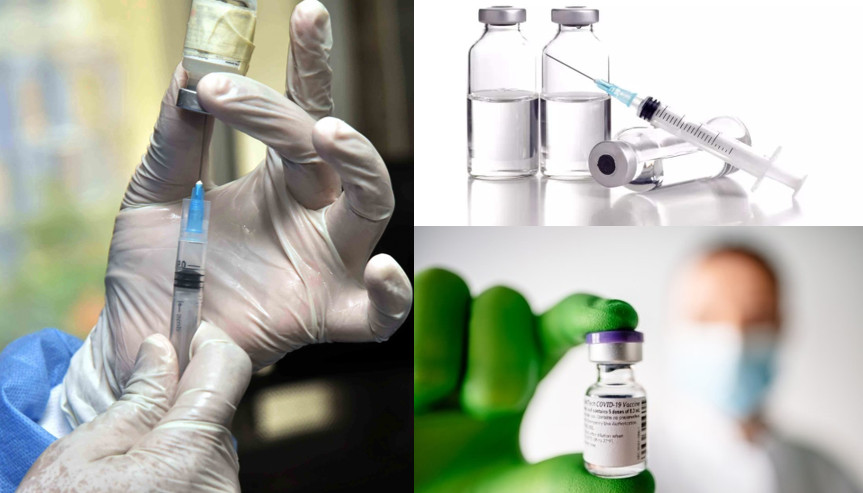The vaccine war against coronavirus has just begun and India is already at the forefront with two vaccines—Covaxin and Covishield. India made headlines by gifting the two vaccines to its neighbours and also selling them to friendly nations at a time when vaccines are difficult to get as the rich countries have control over the limited stocks that are currently available.
The good news is that with nearly a dozen vaccines in the pipeline, India and its famed pharmaceutical industry will continue the battle against coronavirus for long.
As the vaccine factory of the world, India is not only developing indigenous vaccines but is also manufacturing vaccines developed by MNCs. The line-up is such that a series of launches will take place from India right till the end of 2021. We look at some of the vaccines being developed by Indian and foreign pharma companies here:
Aurobindo Pharma: Hyderabad-based Aurobindo Pharma is working on its own Covid-19 vaccine through US subsidiary Auro Vaccines. Besides this, Aurobindo Pharma has also signed a pact with US-based COVAXX to develop, commercialise and manufacture a vaccine to be sold in India and to UNICEF.
Bharat Biotech: The Indian company, already in the news for developing Covaxin is also developing a single dose intranasal vaccine – BBV154 which helps to cut down on the use of syringes, needles and alcohol swabs. The nasal vaccine can be a game changer as it cuts down on administrative and logistical challenges.
Biological E: Hyderabad-based Biological E had announced in November 2020 that it is developing a coronavirus vaccine in collaboration with the Houston-based Baylor College of Medicine and US-based Dynavax Technologies Corp. It has initiated Phase-I and Phase-II clinical trials of its vaccine in India, the results of which are likely to come out in February 2021.
Gennova Biopharmaceuticals: Pune-based Gennova Biopharmaceuticals is conducting human trials of its vaccine, developed in partnership with the US-based HDT Biotech Corporation. The company says that the vaccine has demonstrated safety and efficacy in animal trials. It can be stored between 2 and 8 degrees.
Indian Immunologicals Limited: IIL, which was established by the National Dairy Development Board (NDDB) in 1982, is developing a vaccine in partnership with Griffith University, Australia. The programme is still in infancy as the pre-clinical trials are on currently.
Johnson & Johnson: American pharma giant Johnson & Johnson's Covid-19 vaccine is likely to come to India. The company hopes to release data from Phase-III trials by January end. The J&J vaccine has generated a lot of interest as it is a single-shot vaccine, reducing logistics and other issues tremendously – helping governments scale up mass immunisation.
Mynvax: Bengaluru-based start-up Mynvax, incubated by the Indian Institute of Science, Bangalore, claims to have developed a vaccine which can be stored at 37 degrees Celsius for a month without loss of efficacy. The start-up says the vaccine is ready for safety and human trials.
Novavax: US-based Novavax has made major progress in the development of a vaccine and is expecting initial Phase-III data soon. Interestingly, the vaccine will be made and distributed by its partner—the well-known Serum Institute of India (SII), which is likely to produce up to two billion doses a year. It can be stored at 2-8 degrees Celsius.
Panacea Biotec: The Delhi-based biotech company is in a partnership with US-based pharma company, Refana Inc to develop, manufacture and distribute a Covid-19 vaccine.
Sputnik V: The Covid-19 vaccine, developed by Moscow’s Gamaleya Institute, the Russian Defence Ministry and the sovereign Russian Direct Investment Fund, was the first vaccine to be cleared globally for public use after Russian President Vladimir Putin gave it his nod. Reportedly, his daughter had taken the initial dose. Trials for Sputnik V are being done by Dr Reddy's and the data is likely to be shared in March. Phase-II trials are already over.
Tata Medical and Diagnostics Ltd: Even the Tata Group, through its new healthcare firm, Tata Medical and Diagnostics Ltd (TataMD) is looking at bringing the US biotechnology firm Moderna's Covid-19 vaccine to India.
Zydus Cadila: The Ahmedabad-based pharmaceutical giant is developing its own vaccine, ZyCov-D. It has conducted research with medical laboratories in the US and Europe and is into Phase-3 trials for which it plans to recruit around 30,000 volunteers. Zydus Cadila hopes to get the final data by March-April, after which it will launch the vaccine. ZyCoV-D vaccine can be stored at 2-8 degrees temperature. https://www.thehindubusinessline.com/companies/will-thoroughly-test-vaccine-no-need-for-indemnity-says-zydus-cadila-chairman-pankaj-patel/article33519588.ece
Mutation also a problem
This is not a complete list of vaccines to be rolled out from India. There are more companies grappling with the intricacies of vaccine development—some in collaboration and some alone. There is also the challenge of the virus mutating and changing swiftly, countries will have to keep their research and development of vaccines on the assembly line.
The deadly Covid-19 infection is not the usual virus. In barely a few months of being noticed as a kind of pneumonia in the centrally-located Chinese city of Wuhan, it spread itself across all geographies and countries.
The China factor
China has not helped the world in mitigating the virus at source and by not sharing crucial information on time. After raining misery across the world and pummelling health systems, the virus has now begun to mutate and change—throwing a bigger challenge to medical experts, researchers and governments. They can hope to keep up with a mutating virus only by continually working on the vaccines, tweaking and improving these.
Only the vaccines will keep people protected and the virus in check. India has demonstrated repeatedly that it can support global health systems. India’s antiretroviral (ART) drugs have worked their magic in curbing HIV/AIDS. Today it is the coronavirus vaccination programme in India that is repeating another success story.




















